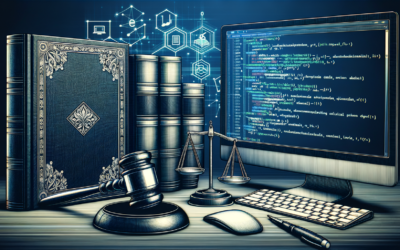Automated Contract Modification
Technological advances have revolutionized traditional contract management in the legal field, and the concept of automated contract modification has simplified and secured contractual updates. This article explores the integration of artificial intelligence (AI) and blockchain technology into contract management processes, enabling greater efficiency and reducing the risk of human error.
What is automated contract modification?
Automated contract modification refers to the use of artificial intelligence software to update and revise contracts without direct human intervention. Thanks to various algorithms and innovative technologies, these tools identify clauses requiring adjustment, suggest relevant modifications and integrate these changes after approval. This method is supported by premium legal software, which offers solutions for optimizing the life cycle of a contract.
Benefits of automating contract modifications
Time-saving efficiency
One of the main advantages of automation is the considerable time it saves. Specialized software, such as that offered by LegalProd, enables lawyers to concentrate on higher value-added tasks by reducing the time spent on manual contract reviews.
Reducing the risk of errors
Artificial intelligence dedicated to contract management minimizes the risk of human error. It performs accurate and consistent analyses, ensuring reliable updating of legal documents.
Remarkable conformity
Monitoring regulatory and legislative compliance is crucial for any company. Automation enables proactive updating of contracts in line with the latest regulations, such as those related to RGPD, ensuring seamless compliance.
Integrating blockchain and smart contracts
Blockchain in Contract Modification
Blockchain is entering the contractual arena, offering a level of security and transparency never seen before. Contract modifications become traceable and unalterable, guaranteeing the integrity of commitments.
Smart Contracts as a Solution
Smart contracts automate the execution of contracts on the blockchain, applying changes and predefined conditions autonomously as soon as a consensus is reached.
Challenges and future of automated modification
Constantly evolving technologies
Automated contract modification evolves with emerging technologies. Tools such as legal project management and legal analytics are shaping the way lawyers interact with contracts.
A Revolution in the Legal Sector
The impact of automation on business law and due diligence compliance is considerable, making these processes more efficient and predictable.
Frequently asked questions
Here is a list of frequently asked questions to help you understand automated contract modification.
What are the challenges involved in automating contracts?
Challenges include resistance to change, the need to train staff in new technologies, and securing the data processed by these systems.
Are automation systems legally recognized?
Yes. Contract management software, including that which automates certain tasks, is regularly used by legal professionals and recognized by the courts in many regions.
Can we trust automation for all types of contract?
While automation offers innumerable advantages, it is advisable to review the application of these technologies for particularly complex or sensitive cases. Human interaction may be required for the subtle nuances of certain chords.
Automating judicial processes and contracts is forward-thinking, but it requires a balanced approach relying on technology and human expertise to reach the full potential offered by AI and blockchain.




